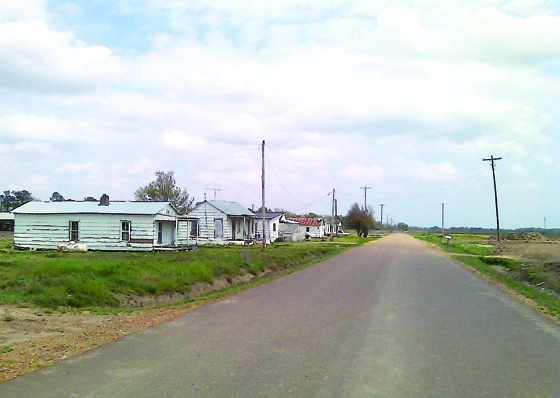BELZONI – Clara Taylor Reed, CEO, founder and owner of Mid-Delta Health Systems, Inc., knows the importance of keeping up with the latest technology in administering healthcare in the Mississippi Delta.
“It can mean a life or death situation to a patient,” said Reed, whose company is a leader in Mississippi’s home health and hospice services. She cited as an example when a home health nurse in a rural area needs to communicate with a doctor in Jackson about a patient. “It is important for that connection not to be interrupted by a dropped call,” she said.
No doubt, the Obama administration and U.S. Congress also understood the critical need for more high-speed Internet access when they put $7.2 billion in stimulus funding for broadband last year. In fact, an Associated Press report indicates that “the Obama administration and Congress have identified universal broadband as a key to driving economic development, producing jobs and bringing educational opportunities and cutting-edge medicine to all corners of the country.”
Reed would be among the first to admit that the Mississippi Delta certainly qualifies as one of those “corners of the country.” While she also admits that personally she does not know a whole lot about the integral workings of broadband, she knows enough to understand “how extremely important accessible technology is to the continuity of patient care.” She said that is why she makes sure Mid-Delta Health Systems, Inc. has the technology people in place that its needs.
Telemedicine has become a major and crucial means of how her 32 year-old company renders patient care. With additional high speed access in place, Reed knows her company and others like hers could serve even more people in rural areas.
The Mississippi Link talked with her company’s Vice President of Information Technology Kevin Shirley Wednesday morning (April 7) via his cell phone while he was driving from Belzoni to Greenwood, Miss., one of the company’s 14-branch locations. During the interview with Shirley, the connection became staticky and was lost several times. “This is a very good parallel example (referring to the disconnected calls) of what happens without the proper infrastructure in place,” said Shirley who stays abreast of the latest technology.
“See, our connection was not able to move voice data from the rural area where I am now to Jackson where you are because the networking availability is sparse and far apart,” he explained, after having to call back four times within five minutes.
Shirley said a lack of broadband access becomes a problem for them when they “get into some of the outlying [or more remote] areas.” “Because we are headquartered in the City of Belzoni, where the [catfish] processing plant and several major banks are located, we were at an advantage technologically even before broadband.
Some branches, located in areas where the telecommunication companies have not completely equipped, run into difficulties. “You can live in a town that has broadband and not everyone will have access if the infrastructure is not fully in place. One person can have access and another person across the street might not, because the telecommunication company may not have brought the line far enough,” said Shirley.
He said while he agrees with the Obama administration, Congressman Bennie Thompson, and all the policymakers who are pushing for universal broadband, he also understands the hesitancy of the telecommunication industry in extending more access to America’s rural areas. “The industry is saying they can’t make a profit in these areas,” Shirley said. “They are asking the question will there be enough subscribers to cover the cost of doing it?”
When it comes to cost, broadband is not only a concern of the telecommunication industry, it is also a concern of the people in the rural who cannot afford to subscribe. Thompson, during a Jackson, Miss. public hearing sponsored on broadband at the JSU e-Center, said he understands his constituents’ concerns. Mississippi’s 2nd Congressional District is the poorest area in the state. Households have little or no broadband access.
State Senator Robert Jackson (D-Marks) is also an advocate of rural broadband. Jackson, who was recently connected to DSL after many years without it, said the need is still great – in healthcare and other industries as well.
In a recent article published in The Mississippi Link, Jackson said, “We should all ask that the Federal Communication Commission ensure all consumers have access to affordable broadband services; that should be our ultimate goal.” Jackson also said rural citizens need to be trained on the importance of and the usage of the Internet. “There are grants out there for that,” he said.
According to AP, last year’s stimulus bill set aside at least $250 million for broadband adoption programs to teach people computer and Internet skills and ensure that they have the equipment to get online.
For information on the Broadband Technology (BTOP) grants, please visit www.broadbandusa.gov
EDITOR’S NOTE: The next several issues of The Mississippi Link will present a series of articles and/or reports on the national concern – The Lack of Broadband Internet Access in Rural America and the Challenges it Presents. If you are experiencing such problems and feel disconnected to the world, please allow The Mississippi Link newspaper and online news to help you share your concerns by emailing editor@mississippilink.com You may also leave a comment in the comment box below this article.


Be the first to comment